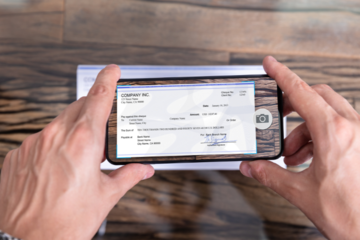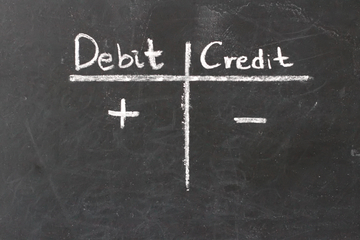A person can have the best budget in place, and then life happens. They get sick, their car breaks down, their hours get cut at work, or a kitchen appliance needs replacing.
In a perfect world, everyone would have a large savings they could pull from during emergencies. For most people though, that’s not the reality. Chances are good that an unexpected expense arises, most people won’t have the funds to cover it.
There are options when things like this happen. One of them is a direct deposit loan. Consumers can apply for a direct deposit loan in minutes and use it to pay for the latest emergency life throws at them.
Let’s look at the definition of direct deposit loans, how long receiving one takes, reasons to take one, and some alternative options for quickly securing money.
What Are Direct Deposit Loans?
A direct deposit loan’s name is self-explanatory. It’s a loan that once the borrower receives an approval, will be deposited into their bank account.
There are a few different types of direct deposit loans that potential borrowers may use to secure the money they need, fast. Here are four of the most common ones:
1) Installment Loans. Most people will already be familiar with the concept of installment loans. These loans extend a certain amount of money as a loan and then set regular, ongoing payments to repay the principal balance and interest. The payments are the same each period, which can help borrowers budget.
2) Credit Card Cash Advances. If a person who needs money has a credit card with available credit, they can often take advantage of the cash advance option some cards offer. This is a convenient option, as the advance is associated with the account the person already has with the creditor. However, some credit cards charge more interest and fees for a cash advance than they do for a regular purchase. This can make the payment go up significantly.
3) Lines of Credit. Some people decide to open a line of credit when they need money. These loans give the borrower access to a certain amount of money to use when they need it. For example, a person may have a $5,000 line of credit, but may only need $800. They could withdraw the money they need and then pay the interest only on that amount borrowed.
A Home Equity Line of Credit (HELOC) is an option for homeowners. The loan uses the equity in the home as the line of credit. With a HELOC, borrowers open the credit line and then pull out money when they need it, just like any other line of credit.
4) Secured(Title) Loans. If a person owns a car, boat, or motorcycle, they may be able to use it as collateral for a loan. The lender puts a lien on the title and then extends a loan for a fraction of the item’s worth. If the person fails to follow the loan terms, meaning they don’t pay on-time, or don’t pay at all, the lender can take ownership of the asset.
How Long Does a Direct Deposit Loan Take?
Emergencies that require immediate payments won’t wait until the next paycheck. Most people turn to direct deposit loans because they allow borrowers to get approved quickly for the funds they need. If the individual is approved for a direct deposit loan, they can see the funds hit their account within several hours to the next business day after approval*. Lenders often have a few requirements of borrowers in order to be eligible for a direct deposit loan. Many lenders requires the borrower to:
1) Be at least 18 years old. Individuals who aren’t adults yet cannot qualify for a direct deposit loan. In some states, the age of majority requirements may be different.
2) Have a bank account in their name. The lender will need the account number to direct deposit the funds into the account.
What About Credit Scores?
Credit scores are an indicator some lenders use in deciding if a person is credit-worthy. Fortunately, there are bad credit loans available that take into consideration factors other than a borrower’s credit score alone. If a person has a low credit score or limited credit history, it won’t automatically exclude them from access to a direct deposit loan.
Reasons to Choose a Direct Deposit Loan
As with any financial decision, consumers need to make sure they are making the right decision . They should consider all aspects of a direct deposit loan.
If a person needs a loan to cover the expenses that life has thrown at them, they have many choices to think about. However, circumstances may rule some options out, giving them only a few ways to go. Here are four reasons why individuals opt for a direct deposit loan.
1) Receive money fast. In addition to a speedy decision, the funds get into the borrower’s hands quicker with a direct deposit loan than with other loans. Even if they approve a loan, other lenders may take days to release the funds into the borrower’s bank account. Once a direct deposit loan gets approved, the lender sends it through to the borrower’s account. The money typically hits the account and is ready to be used by the next business day*.
2) It’s an option for those with bad credit. According to the credit bureau Equifax, credit scores below 580 are considered “poor” and may hinder a person’s ability to get approved for loans. A person who has poor credit but needs a loan can turn to direct deposit loans as a way to get the funds they need.
3) Complete the application quickly. Many loan programs require the hopeful borrower to fill out several pages of paperwork and share tons of personal information about their employment, debt load, and saving habits, among other things. These long applications can be frustrating and confusing. With direct deposit loans, the application process is simple and short. A direct deposit loan application takes a few minutes to fill out online with the person’s basic information and the amount of the loan they’re requesting.
4) Get a speedy approval decision. Other loans can take several days to get approved, as they go through a multi-step process that drags out the decision. With direct deposit loans, the person can find out if they are getting the loan within minutes. This is a big benefit to people with emergencies or unexpected repairs to their vehicle that need to be paid for immediately. When waiting days on approval or denial isn’t acceptable, a direct deposit loan may be the best choice.
What Are the Alternatives to Direct Deposit Loans?
When emergencies hit and a person is looking to find the money to cover an expense, it’s a good idea for them to take a breath and consider all their options. There may be another way to raise the money than a direct deposit loan. Three other ways to access the funds a person needs are:
1) Pawn shop loans. These loans are typically in-person transactions. They compare to direct deposit loans in that they get a person money, fast. The downside is that an individual needs an item of value to secure the loan. In addition, pawn shops typically only loan a fraction of the item’s worth. If the individual fails to pay the loan back, the item will be sold in the shop to recoup the loan amount.
2) Friends or family. If a person falls on hard times and needs a quick loan, their loved ones may be able to help them out. This option is a good one if a person has bad credit or no income, which would make other ways of getting a loan difficult. However, borrowing money can cause stress among friends and family, especially if the borrower fails to pay it back.
3) Paycheck advance. This option largely hinges on the policies of the person’s employer. If an individual has an unplanned emergency, a sympathetic employer may agree to advance their wages to cover the expense.
Direct Deposit Loans Are Typically Unsecured Personal Loans
Keep in mind that there’s no required collateral for most direct deposit loans. This means the person isn’t risking the vehicle or other valuable possessions if they default on the loan. This is a big benefit to many borrowers. An unsecured personal loan is a good option for individuals who don’t have or don’t want to risk a valuable item.
Apply for an Unsecured Personal Loan
Unplanned expenses that people aren’t prepared for happen every day. Although it’s stressful when it happens, it’s good to know there are options available to cover these costs. Integra Credit understands these emergencies, and we also know that not everyone has tons of money saved or high credit scores. Contact us today to apply for a personal loan in minutes.
Sources
https://www.creditninja.com/direct-deposit-loans-in-minutes/



